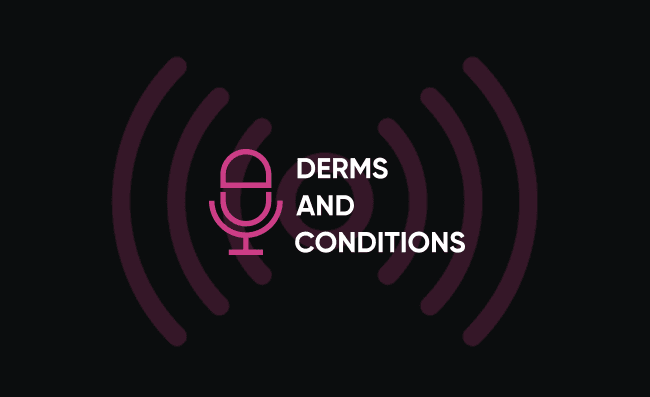Derms and Conditions Podcast Episode 79:
Artificial Intelligence: Is It "Authentic" Enough Right Now?
Featuring Faranak Kamangar, MD and April Armstrong, MD, MPH | Release Date: May 09, 2024
In this episode of Derms and Conditions, host James Q Del Rosso, DO, interviews Faranak Kamangar, MD, and April Armstrong, MD, MPH, about the integration of artificial intelligence (AI) in dermatology. They discuss specialized dermatologic models, ethical considerations, and the crucial role of physicians in refining these technologies.
The discussion begins with the host addressing concerns regarding the "authenticity" of AI and how Dr Kamangar developed a strong interest in AI, stemming from her engineering background and interest in health technology, particularly in the development of language-learning models. She explains the significance of ChatGPT opening the door publicly for AI, followed by specialized models revolutionizing AI accuracy. They then discuss the vetting process for AI accuracy, addressing both anticipated and logical errors and the more subtle errors seen in field-specific results. Dr Kamangar emphasizes the importance of using specialized AI models for dermatology to ensure the most precise results.
The discussion with both Dr Kamangar and Dr Armstrong also touches on the ethical considerations surrounding AI use in medical writing, highlighting the necessity of disclosing AI involvement to uphold integrity in academic publishing. Exploring the use of AI in electronic medical records (EMRs), Dr Kamangar and Armstrong underscore the importance of maintaining HIPAA compliance and the need for human oversight when integrating AI into EMRs and publications. They note that when implemented effectively, AI use in EMRs has the potential to reduce human errors, and with both medical record documentation and publication writing, has the potential to alleviate burnout.
The conversation then shifts to the role of residents in integrating AI tools into their practice, with Dr Armstrong noting that residents are often early adopters of new technologies. They also emphasize the importance of physician involvement in the early development of dermatology-specific AI solutions, which is essential for shaping tools that address real-world challenges in dermatologic practice.
Looking forward, they both anticipate continued integration of AI in dermatology practice, emphasizing the need for physicians to familiarize themselves with this technology to determine what models are dependable and ultimately to optimize patient care.
Tune into the episode to further explore the many nuanced challenges and opportunities presented by AI adoption in dermatology!
